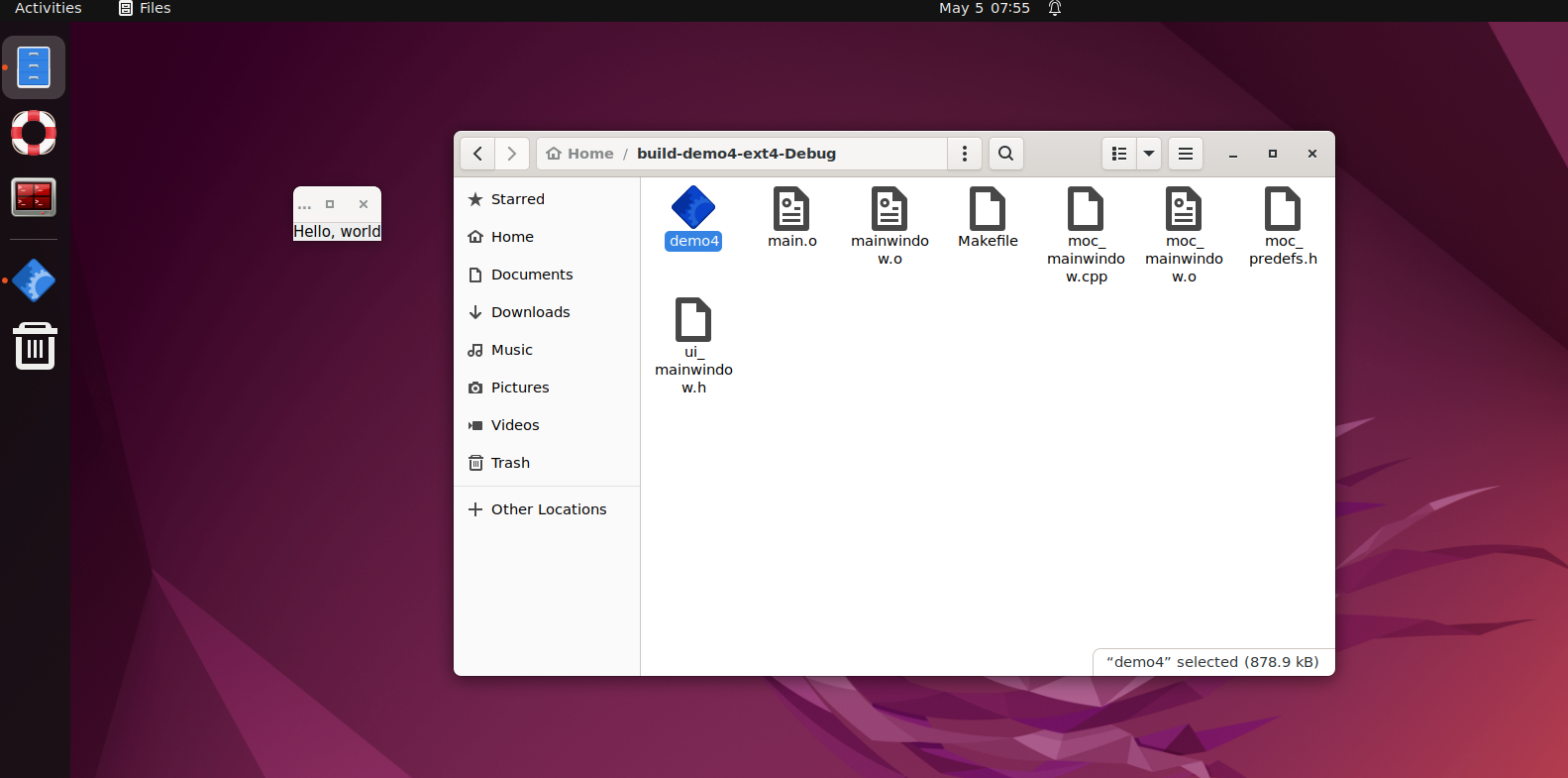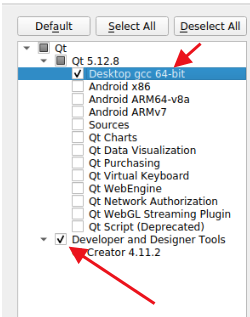Rock3/dev/qt
ROCK 3 > Development > rockchip qt
Contents
porting qt to rockchip platforms
about qt tools
tools
sudo apt-get install build-essential cmake wget https://releases.linaro.org/components/toolchain/binaries/7.3-2018.05/aarch64-linux-gnu/gcc-linaro-7.3.1-2018.05-x86_64_aarch64-linux-gnu.tar.xz sudo tar xvf gcc-linaro-7.3.1-2018.05-x86_64_aarch64-linux-gnu.tar.xz -C /usr/local/
download qt source code
mkdir -p pro/qtSourceDir && cd pro/qtSourceDir wget https://download.qt.io/archive/qt/5.12/5.12.2/single/qt-everywhere-src-5.12.2.tar.xz tar -xvf qt-everywhere-src-5.12.2.tar.xz
or you can download them from [here]
installation
vi qtbase/mkspecs/linux-aarch64-gnu-g++/qmake.conf
Before modification
# # qmake configuration for building with aarch64-linux-gnu-g++ # MAKEFILE_GENERATOR = UNIX CONFIG += incremental QMAKE_INCREMENTAL_STYLE = sublib include(../common/linux.conf) include(../common/gcc-base-unix.conf) include(../common/g++-unix.conf) # modifications to g++.conf QMAKE_CC = aarch64-linux-gnu-gcc QMAKE_CXX = aarch64-linux-gnu-g++ QMAKE_LINK = aarch64-linux-gnu-g++d QMAKE_LINK_SHLIB = aarch64-linux-gnu-g++ # modifications to linux.conf QMAKE_AR = aarch64-linux-gnu-ar cqs QMAKE_OBJCOPY = aarch64-linux-gnu-objcopy QMAKE_NM = aarch64-linux-gnu-nm -P QMAKE_STRIP = aarch64-linux-gnu-strip load(qt_config) After modification # # qmake configuration for building with aarch64-linux-gnu-g++ # MAKEFILE_GENERATOR = UNIX CONFIG += incremental QMAKE_INCREMENTAL_STYLE = sublib QT_QPA_DEFAULT_PLATFORM = linuxfb QMAKE_CFLAGS_RELEASE += -O2 -march=armv8-a -lts QMAKE_CXXFLAGS_RELEASE += -O2 -march=armv8-a -lts include(../common/linux.conf) include(../common/gcc-base-unix.conf) include(../common/g++-unix.conf) # modifications to g++.conf QMAKE_CC = /usr/local/gcc-linaro-7.3.1-2018.05-x86_64_aarch64-linux-gnu/bin/aarch64-linux-gnu-gcc QMAKE_CXX = /usr/local/gcc-linaro-7.3.1-2018.05-x86_64_aarch64-linux-gnu/bin/aarch64-linux-gnu-g++ QMAKE_LINK = /usr/local/gcc-linaro-7.3.1-2018.05-x86_64_aarch64-linux-gnu/bin/aarch64-linux-gnu-g++ QMAKE_LINK_SHLIB = /usr/local/gcc-linaro-7.3.1-2018.05-x86_64_aarch64-linux-gnu/bin/aarch64-linux-gnu-g++ # modifications to linux.conf QMAKE_AR = /usr/local/gcc-linaro-7.3.1-2018.05-x86_64_aarch64-linux-gnu/bin/aarch64-linux-gnu-ar cqs QMAKE_OBJCOPY = /usr/local/gcc-linaro-7.3.1-2018.05-x86_64_aarch64-linux-gnu/bin/aarch64-linux-gnu-objcopy QMAKE_NM = /usr/local/gcc-linaro-7.3.1-2018.05-x86_64_aarch64-linux-gnu/bin/aarch64-linux-gnu-nm -P QMAKE_STRIP = /usr/local/gcc-linaro-7.3.1-2018.05-x86_64_aarch64-linux-gnu/bin/aarch64-linux-gnu-strip load(qt_config)
- Create a new automatic configuration script file
vi auto.sh
#!/bin/sh mkdir -p /opt/qtInstallDir ./configure \ -prefix /opt/qtInstallDir \ -confirm-license \ -opensource \ -release \ -make libs \ -xplatform linux-aarch64-gnu-g++ \ -pch \ -qt-libjpeg \ -qt-libpng \ -qt-zlib \ -no-opengl \ -no-sse2 \ -no-openssl \ -no-cups \ -no-glib \ -no-dbus \ -no-xcb \ -no-separate-debug-info \ -no-ssl \ -nomake tests \ -nomake examples \ -nomake tools \ -no-sql-sqlite \ -no-iconv \ -skip qt3d \ -skip qtactiveqt \ -skip qtcanvas3d \ -skip qtcharts \ -skip qtconnectivity \ -skip qtdatavis3d \ -skip qtdeclarative \ -skip qtgamepad \ -skip qtandroidextras \ -skip qtdoc \ -skip qtwebchannel \ -skip qtwebengine \ -skip qtwebglplugin \ -skip qtwebview \ -skip qtvirtualkeyboard \ -recheck make make install
* If you encounter an error similar to the following, /dir/to/source/sol.hpp:7194:59: error: ‘numeric_limits’ is not a member of ‘std’ add the following line to the file #include <limits>
sudo chmod +x auto.sh sudo ./auto.sh
- after success you can see
test@test-desktop:/opt$ ls /opt/qtInstallDir/ bin doc include lib mkspecs plugins translations test@test-desktop:/opt$ ls /opt/qt5.9.4-arm/ bin lib mkspecs
qt creator installation
download installation tools
wget https://download.qt.io/archive/qt/5.12/5.12.2/qt-opensource-linux-x64-5.12.2.run or you can download them from [here]
installation
sudo chmod +x qt-opensource-linux-x64-5.12.2.run sudo ./qt-opensource-linux-x64-5.12.2.run
env
indeed tools
sudo apt-get install libgl1-mesa-dev libglu1-mesa-dev -y
add kits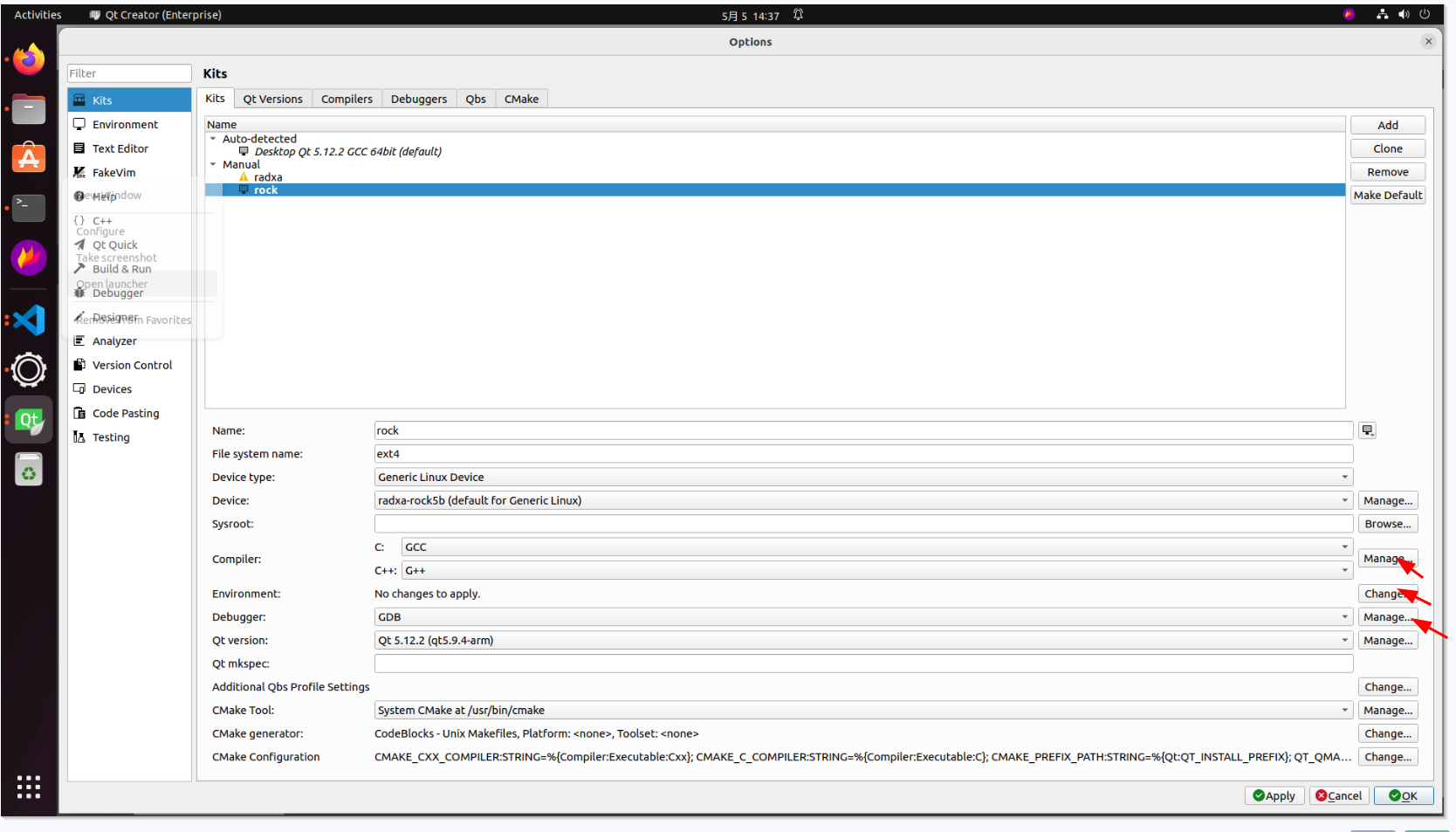
add gcc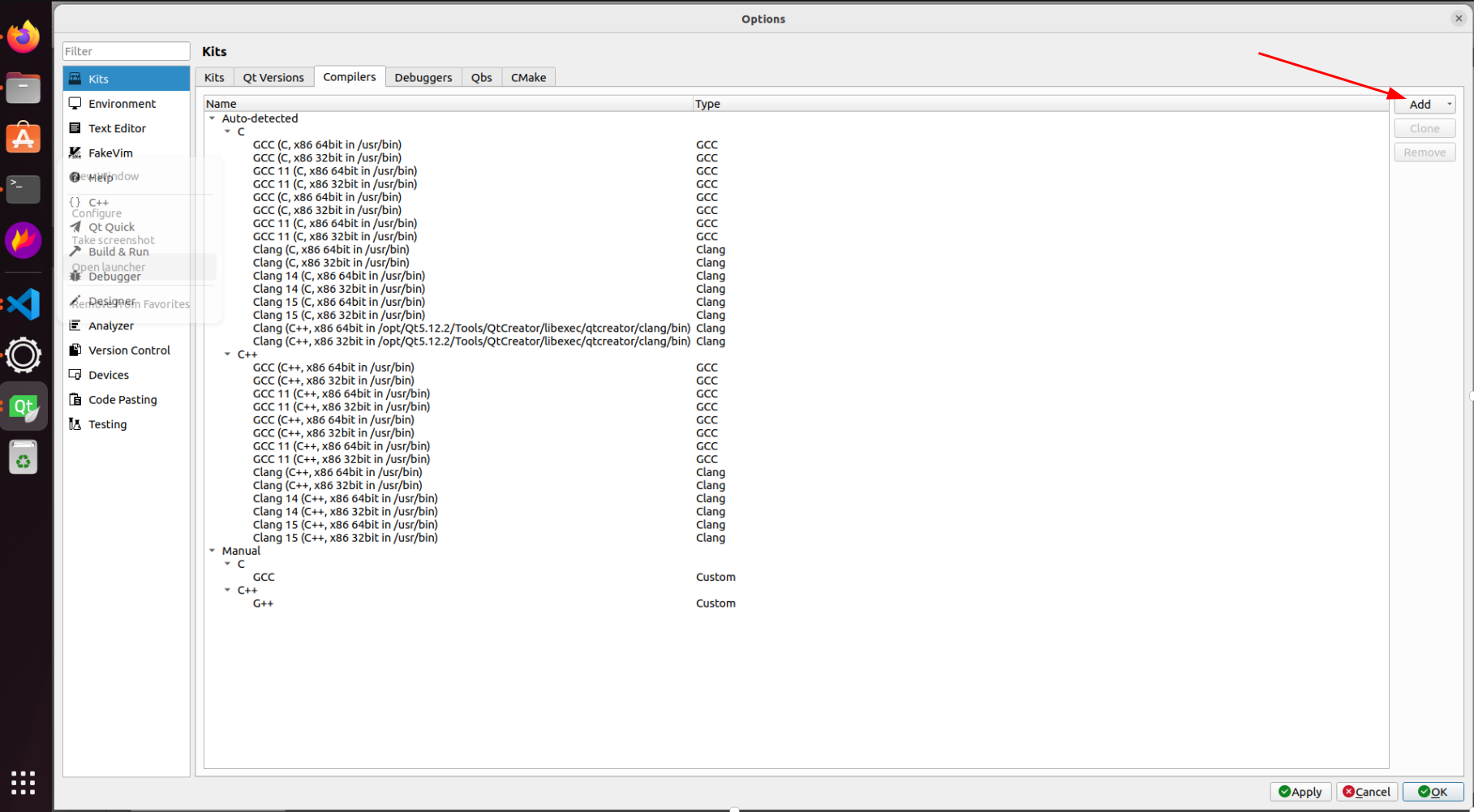
add gdb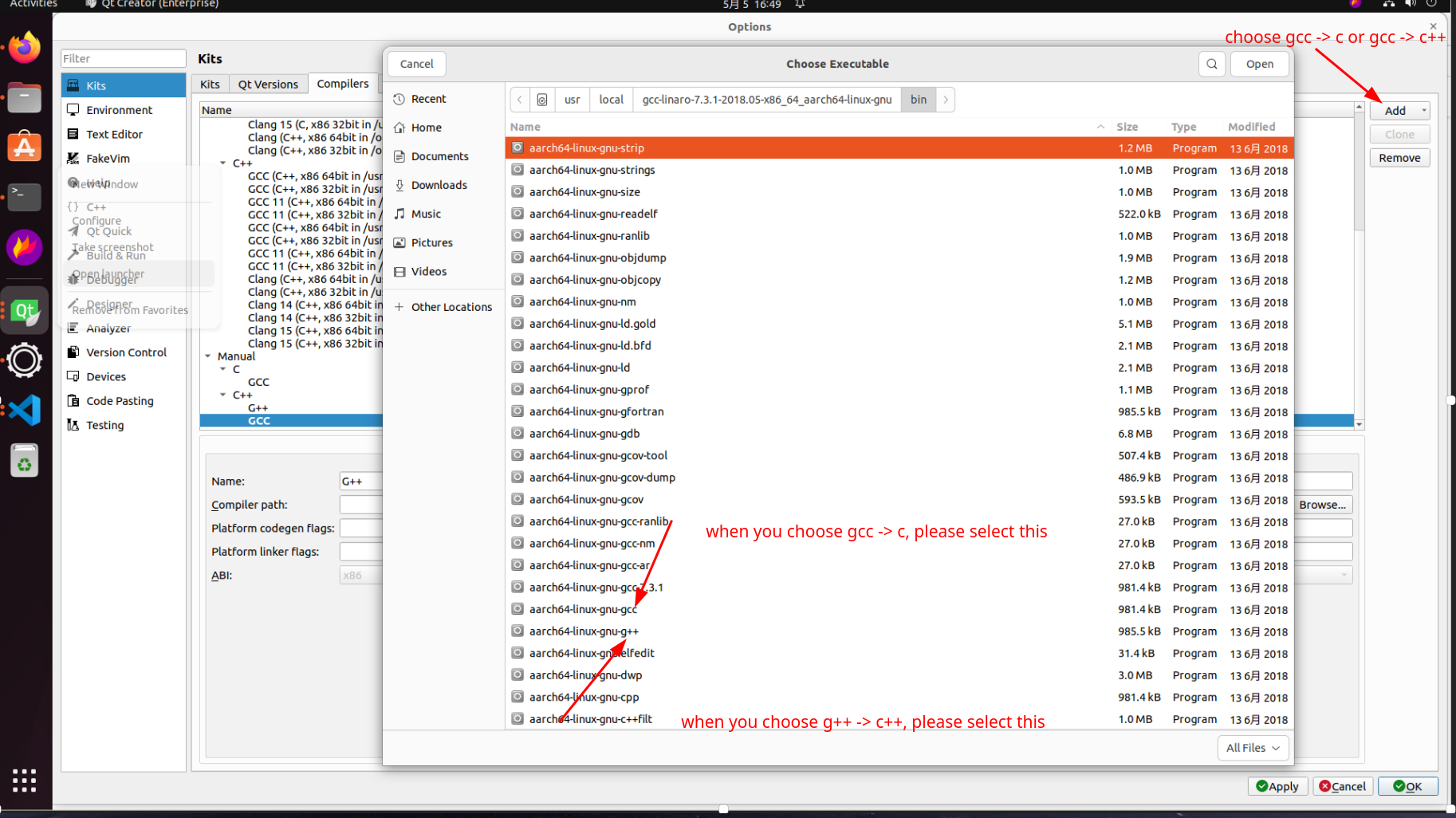
add a new device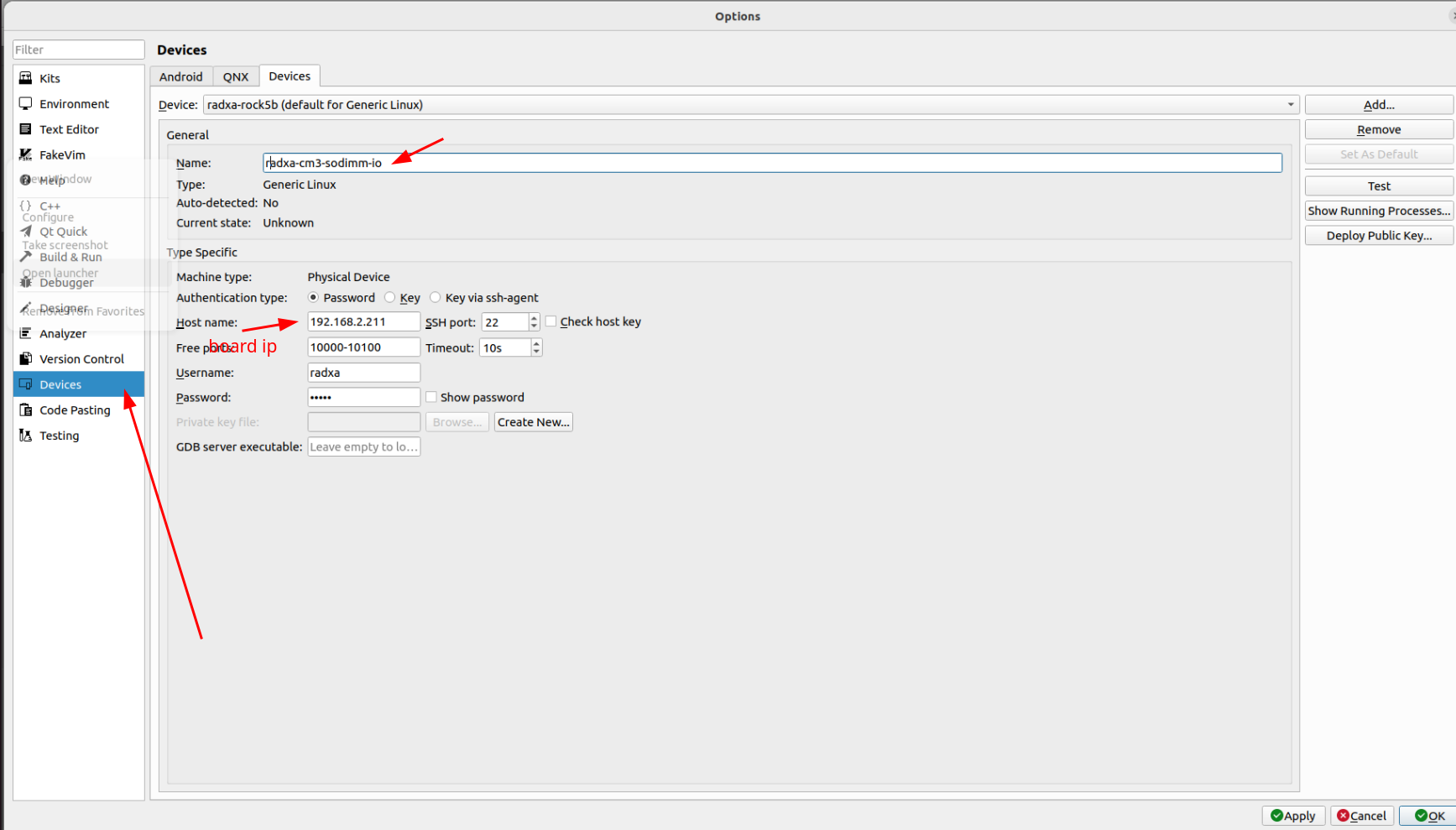
let's coding
creat a new project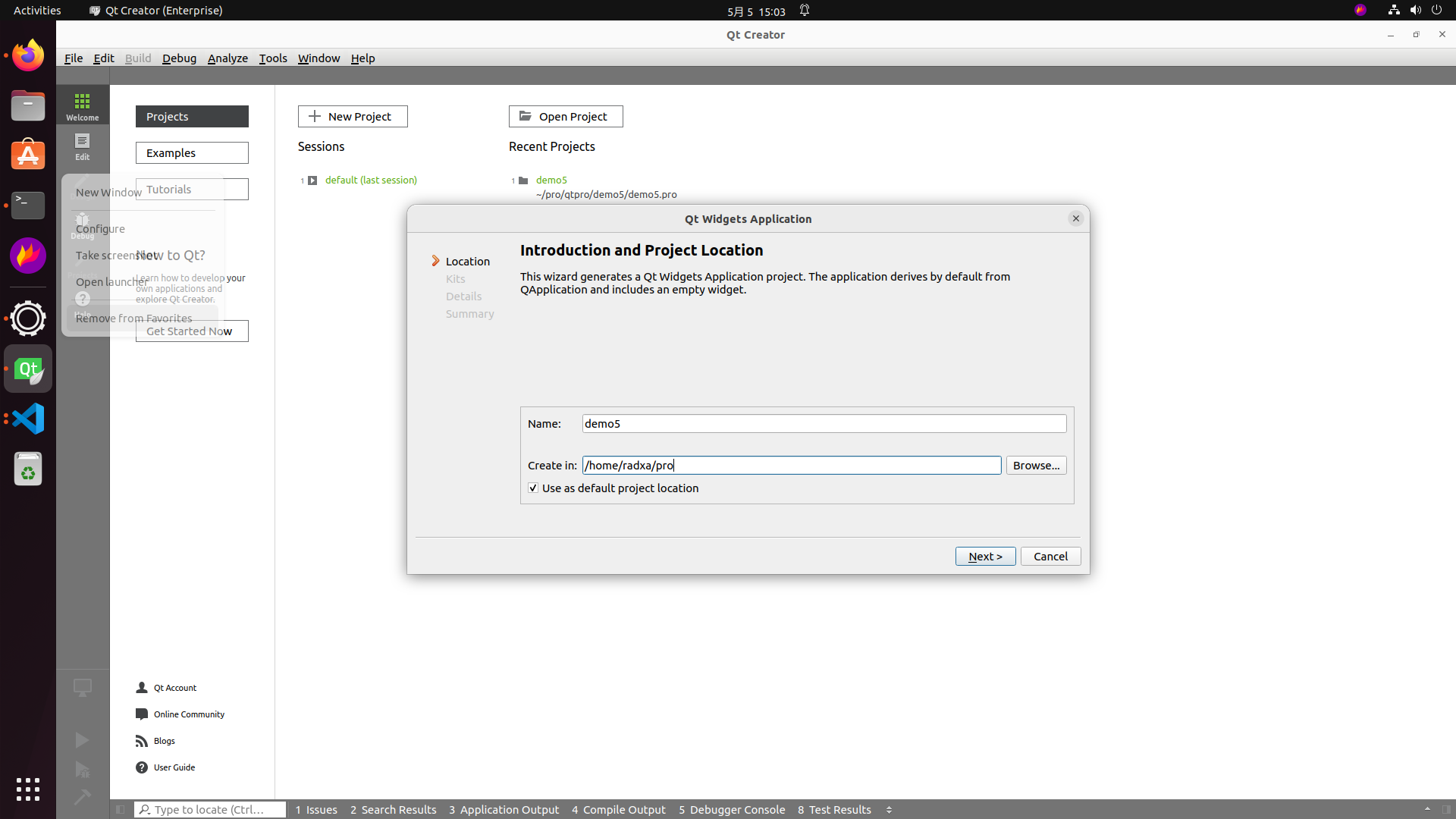
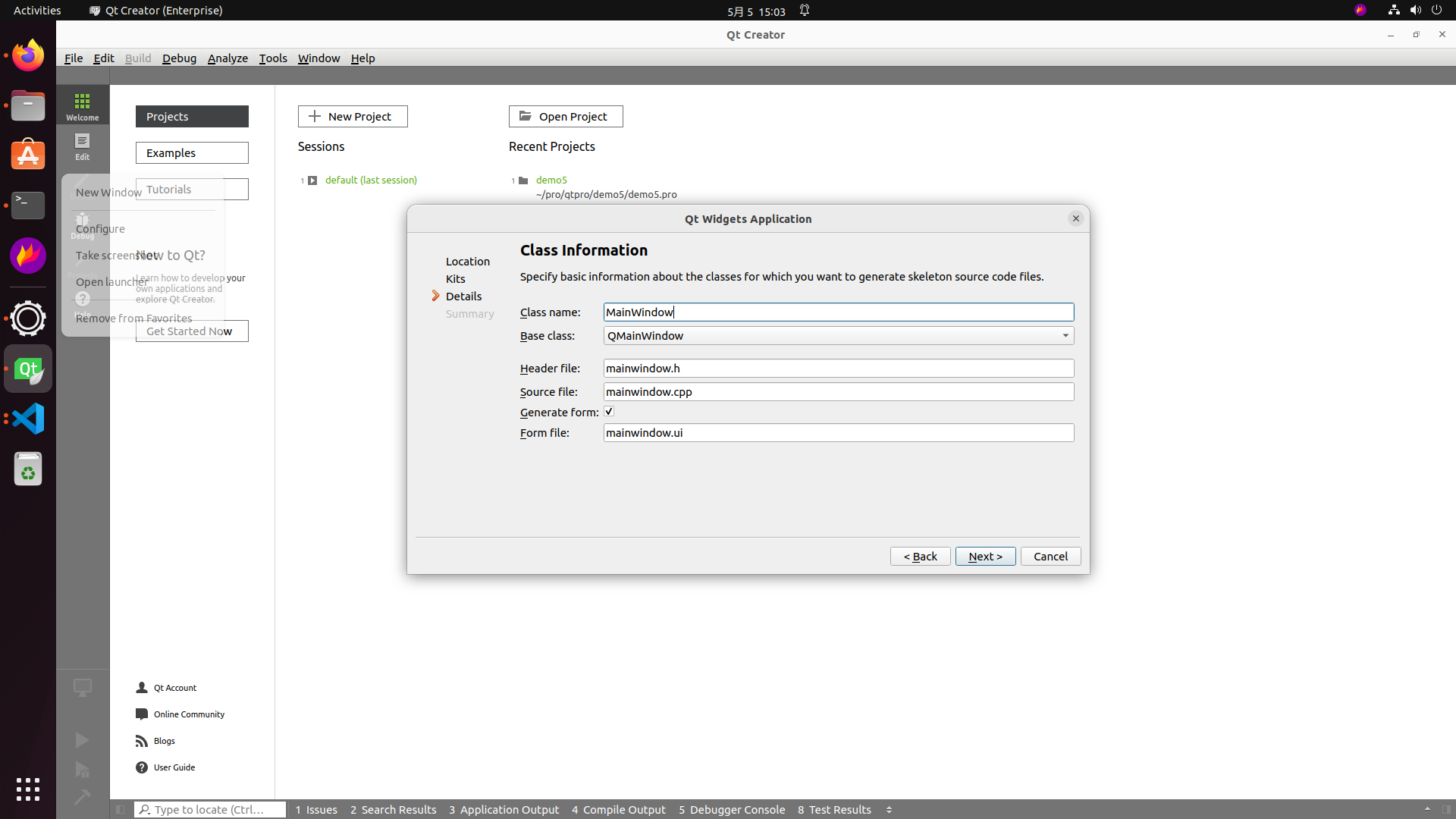
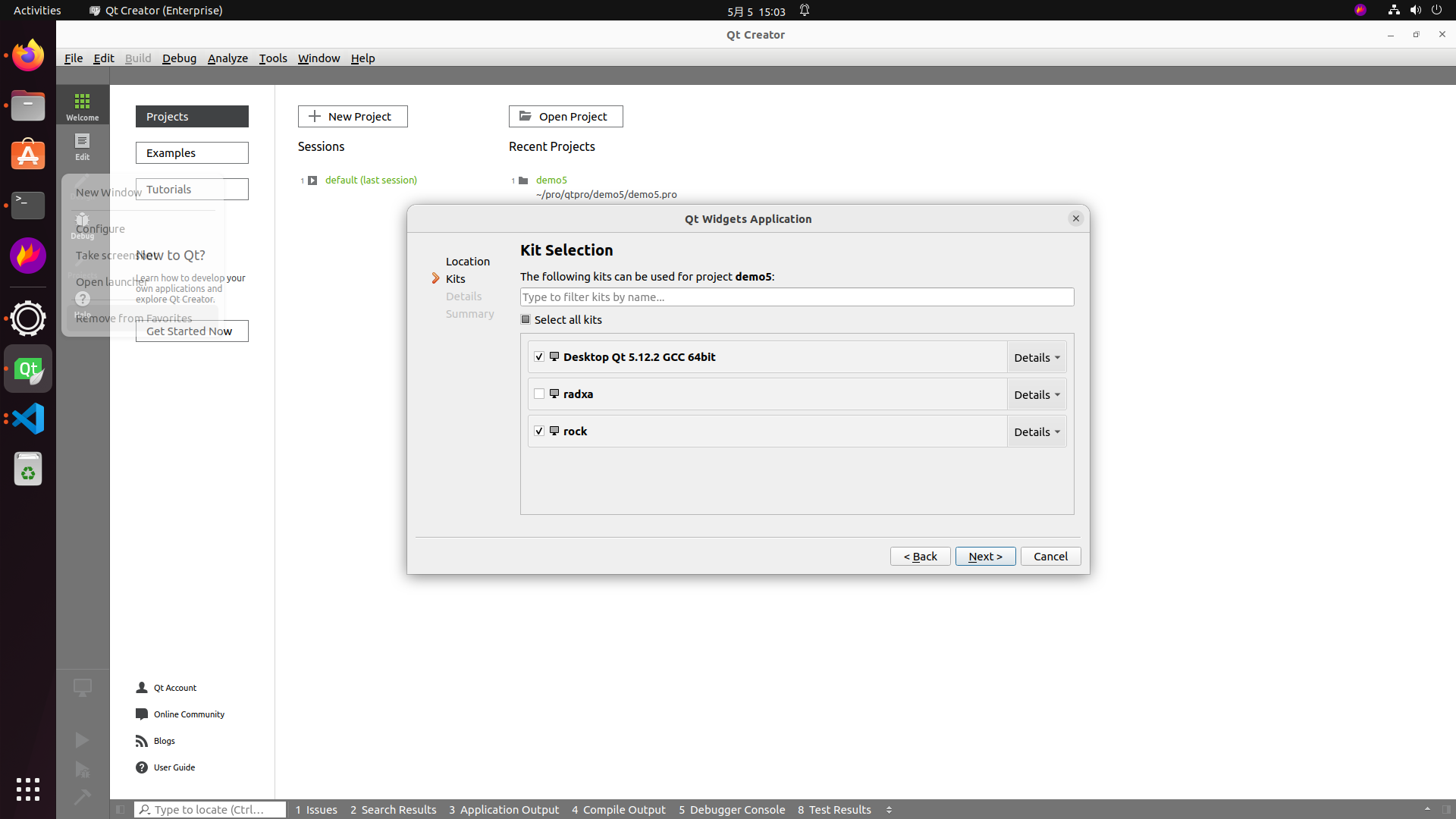
main codethen choose Debugger->rock->Debug, just click it
on board
- env
sudo apt-get install libqt5gui5 -y
- copy the project to you board which has a desktop
scp build-demo4-ext4-Debug radxa@192.168.2.211:~
- Execute the program
./demo4 or click it